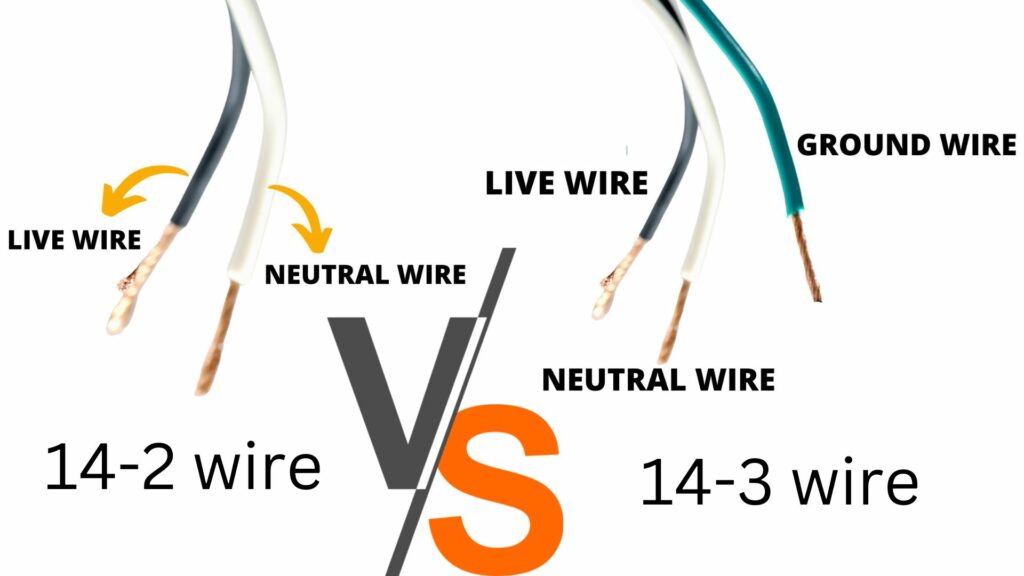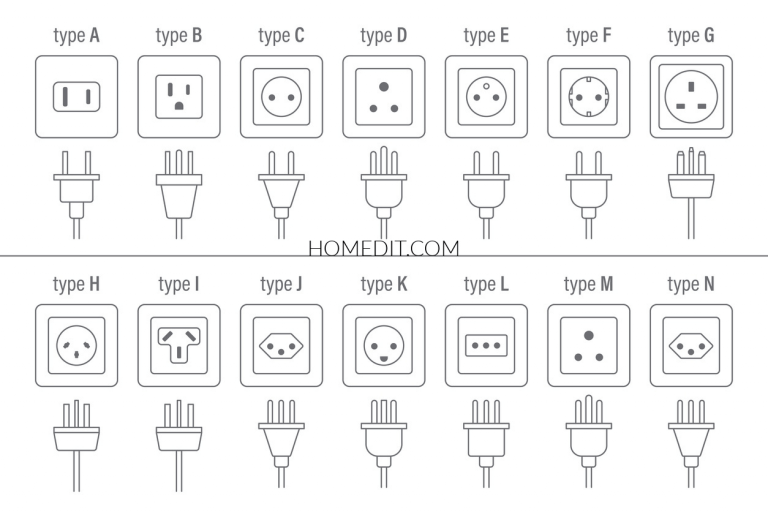Stunning Tips About Should I Use 12-2 Or 14 2 For Outlets

Deciding Between 12-2 and 14-2 Wire for Outlets
1. Understanding Electrical Wiring Basics
Okay, so you're tackling some electrical work and find yourself staring at spools of wire labeled "12-2" and "14-2." Don't sweat it; many homeowners find themselves in the same boat. The core question you're likely asking is, "Should I use 12-2 or 14-2 for outlets?" The short answer is, it depends on your circuit's amperage. But let's dive into the details so you can make the right call for your project and, more importantly, ensure your safety.
Think of electrical wiring like plumbing. A smaller pipe (or wire) can only handle so much water (or electricity). Exceed its capacity, and you're asking for trouble. In electrical terms, that trouble could be a tripped circuit breaker, a scorched wire, or even a fire — yikes! So, selecting the proper gauge wire is essential, not just for performance, but for safety.
The numbers "12" and "14" in the wire designation refer to the American Wire Gauge (AWG). A lower number means a thicker wire. Thicker wires can handle more current (measured in amps). The "-2" simply indicates that there are two insulated current-carrying conductors inside the cable plus a bare ground wire. Now, let's figure out which one is best for your outlets.
Imagine you're building a Lego set. You wouldn't just randomly grab bricks; you'd follow the instructions. Similarly, when it comes to electrical wiring, knowing the specifications — in this case, amperage — is vital. It's the key to choosing the correct wire gauge and avoiding any electrical mishaps.

Figuring Out Your Circuit's Amperage
2. Matching Wire Gauge to Breaker Size
Before you even think about wiring an outlet, you need to know the amperage of the circuit breaker that controls it. Look at your electrical panel; each breaker should have a number on it (like "15" or "20"). This number indicates the amperage of that circuit. This is crucial: your wiring must be rated to handle at least that much current.
14-2 wire is typically used for 15-amp circuits. 12-2 wire, on the other hand, is usually used for 20-amp circuits. Using 14-2 on a 20-amp circuit is a big no-no. It's like putting bicycle tires on a monster truck — they're not going to hold up under the pressure! You could use 12-2 on a 15-amp circuit. It's like having a slightly oversized pipe in your plumbing; it won't hurt anything but might be a little overkill. However, it adds cost, and you still need to ensure the breaker size matches the devices plugged into the outlet.
Consider this analogy: youre planning a party, and you need to decide on the right size cooler for your drinks. If you're only having a small gathering, a small cooler will do. But if you're throwing a big bash, you'll need a larger cooler to accommodate all the drinks. Similarly, the amperage of your circuit determines the "size" of wire you need to safely carry the electrical load.
Check local building codes, too. Some jurisdictions might have specific requirements regarding wire gauge for certain applications. Building codes are there for a reason they want to make sure your house doesnt become a fire hazard. So, a quick check with your local authority can save you headaches later on.

Real Tree Xtra Colors Women’s Lg 1214 VNeck TShirt, Pink Camo EBay
Why Using the Right Wire Matters (A Lot!)
3. Safety First
I can't stress this enough: using the wrong wire gauge can be dangerous. When a wire is overloaded (i.e., carrying more current than it's rated for), it heats up. This can melt the insulation, causing short circuits, shocks, and, in the worst-case scenario, a fire. No one wants a spontaneous combustion display in their living room!
Think of it like this: imagine running a marathon in flip-flops. Sure, you could do it, but you're much more likely to get blisters, twist an ankle, and generally have a miserable experience. Similarly, using the wrong wire gauge is setting yourself up for electrical problems down the road. Its simply not worth the risk.
Moreover, using the wrong wire size can affect the performance of your electrical devices. An overloaded circuit can cause lights to dim, appliances to malfunction, and electronics to behave erratically. It's like trying to run a high-performance engine on low-octane fuel — it just won't run smoothly.
Finally, remember that electrical work isn't just about getting the lights to turn on. Its about ensuring the safety and reliability of your electrical system for years to come. A little extra care and attention to detail upfront can save you a whole lot of headaches (and potential hazards) later on.

Practical Examples and Scenarios
4. Putting Theory into Practice
Let's say you're installing a new outlet in your kitchen for your microwave. Microwaves typically draw a fair amount of power, so they usually require a dedicated 20-amp circuit. In this case, you would definitely want to use 12-2 wire. Using 14-2 would be a recipe for disaster.
Now, imagine you're wiring an outlet in a bedroom for a lamp and maybe a phone charger. These devices don't draw nearly as much power, so they can typically be wired with a 15-amp circuit using 14-2 wire. Just be mindful of what you plug into that outlet later. If you suddenly start plugging in space heaters and hair dryers, you might trip the breaker.
Another scenario: you're replacing an existing outlet. Before you start, check the wire that's already there. If it's 12-2, replace it with 12-2. If it's 14-2, replace it with 14-2. Don't mix and match wire gauges unless you know exactly what you're doing. Changing the wire gauge in this case might mean you need to look at the breaker size as well!
Remember, these are just examples. The specific wiring requirements for your project will depend on the devices you're planning to use and the applicable building codes. Always consult a qualified electrician if you're unsure about anything. They can provide personalized advice based on your specific situation.

When in Doubt, Call a Pro!
5. The Importance of Professional Electrical Work
I know, I know, you're handy around the house. But when it comes to electricity, it's often best to leave it to the professionals. Electrical work can be dangerous, and mistakes can have serious consequences. A qualified electrician has the training, experience, and tools to ensure the job is done safely and correctly.
Think of it like performing surgery on yourself. You could watch some YouTube videos and try to remove your own appendix, but you're probably better off going to a trained surgeon. Similarly, while you might be able to wire an outlet, a qualified electrician can ensure that your electrical system is up to code and safe for your family.
Beyond safety, a professional electrician can also help you troubleshoot electrical problems, design efficient lighting systems, and install specialized electrical equipment. They can also provide valuable advice on energy conservation and help you save money on your electricity bill. In short, they're worth their weight in gold.
Ultimately, deciding whether to use 12-2 or 14-2 wire for outlets comes down to understanding your circuit's amperage and matching the wire gauge accordingly. But remember, safety should always be your top priority. If you're unsure about anything, don't hesitate to call a qualified electrician. They'll ensure your electrical system is safe, reliable, and up to code.

Chico's Traveler Vest Black/Beige Zipup Hooded Slinky Knit Size 2
Frequently Asked Questions (FAQs)
6. Answers to Common Wiring Questions
Q: Can I use 12-2 wire for everything, even 15-amp circuits?A: Technically, yes, you can use 12-2 wire for 15-amp circuits. However, it's generally not necessary and can be more expensive. It's like buying a tank to drive to the grocery store — it will work, but it's overkill. Plus, it might be harder to work with because it's thicker. Just ensure your breaker matches what is safe to plug into your outlets.
Q: What happens if I accidentally use 14-2 wire on a 20-amp circuit?A: This is a dangerous situation. The 14-2 wire is not rated to handle the current of a 20-amp circuit. It will likely overheat, potentially melting the insulation and causing a fire hazard. It's crucial to correct this immediately. Think of it as trying to drive a car with under-inflated tires; it puts unnecessary strain on the system and increases the risk of a blowout.
Q: How do I know if an outlet is on a 15-amp or 20-amp circuit?A: The easiest way to tell is to check the circuit breaker that controls the outlet. The breaker will have a number on it (15 or 20) indicating the amperage. You can also look at the outlet itself. 20-amp outlets have a T-shaped neutral slot, while 15-amp outlets have a straight neutral slot. If you see a T-shaped neutral slot, it should be on a 20 amp circuit, but ALWAYS verify at the breaker.